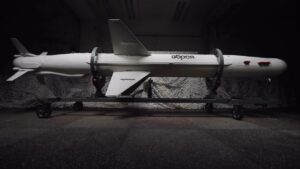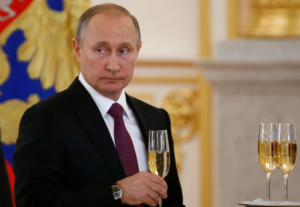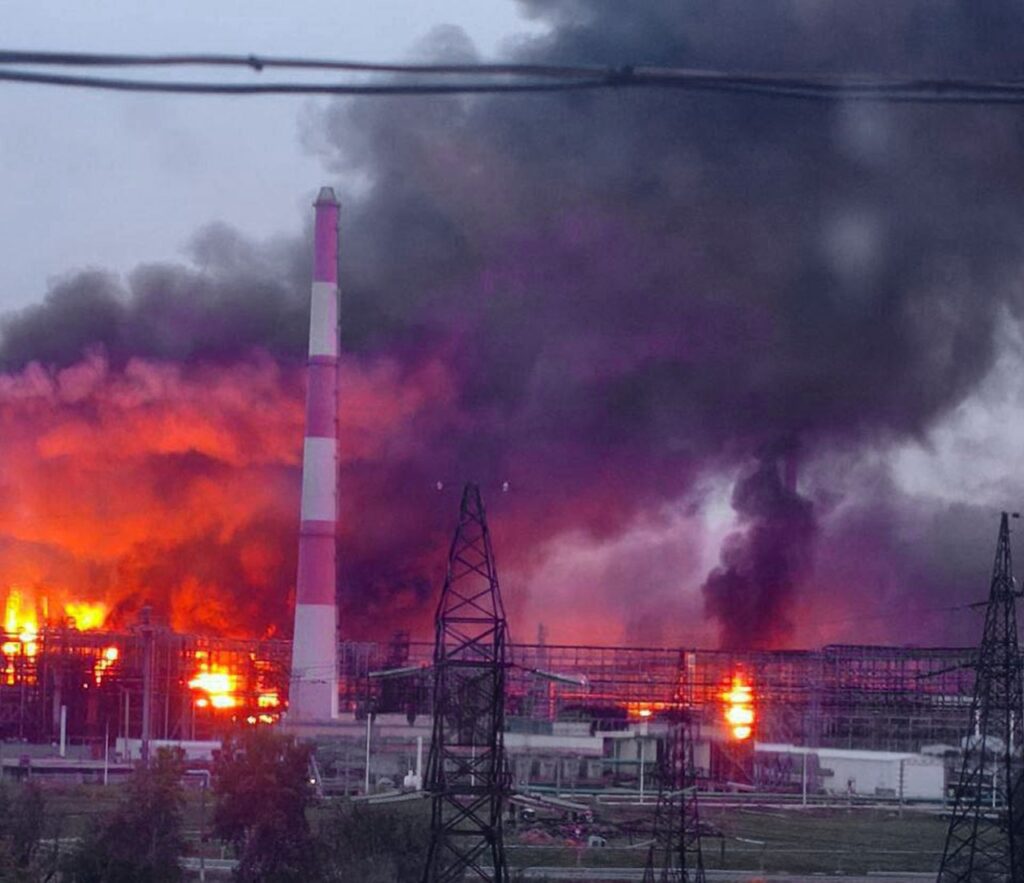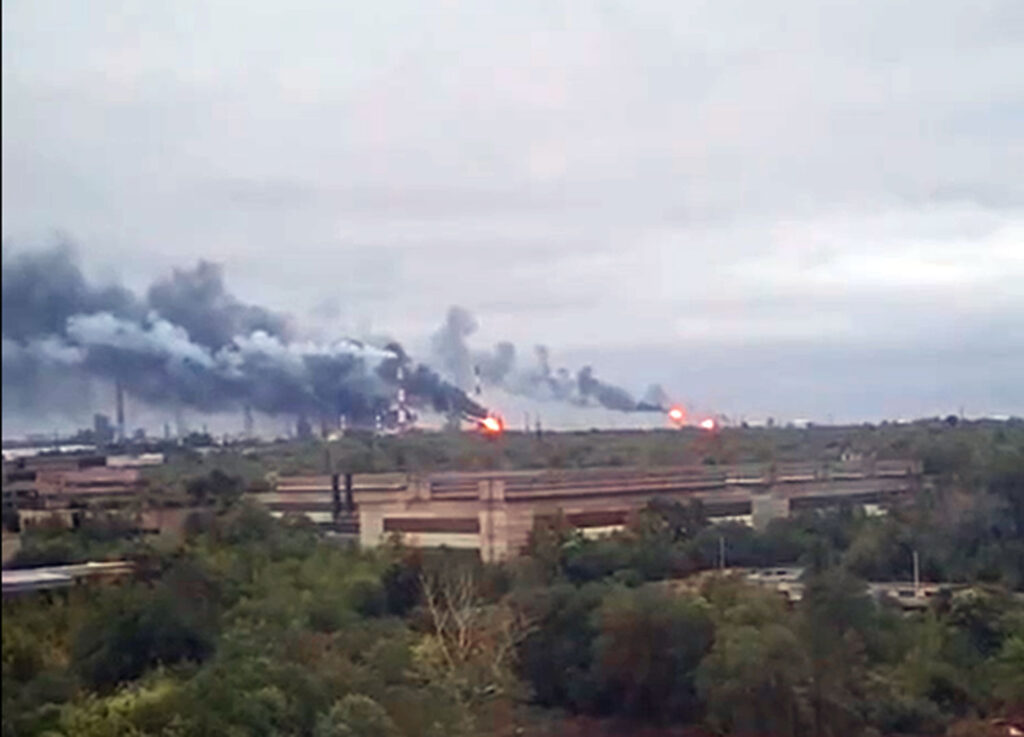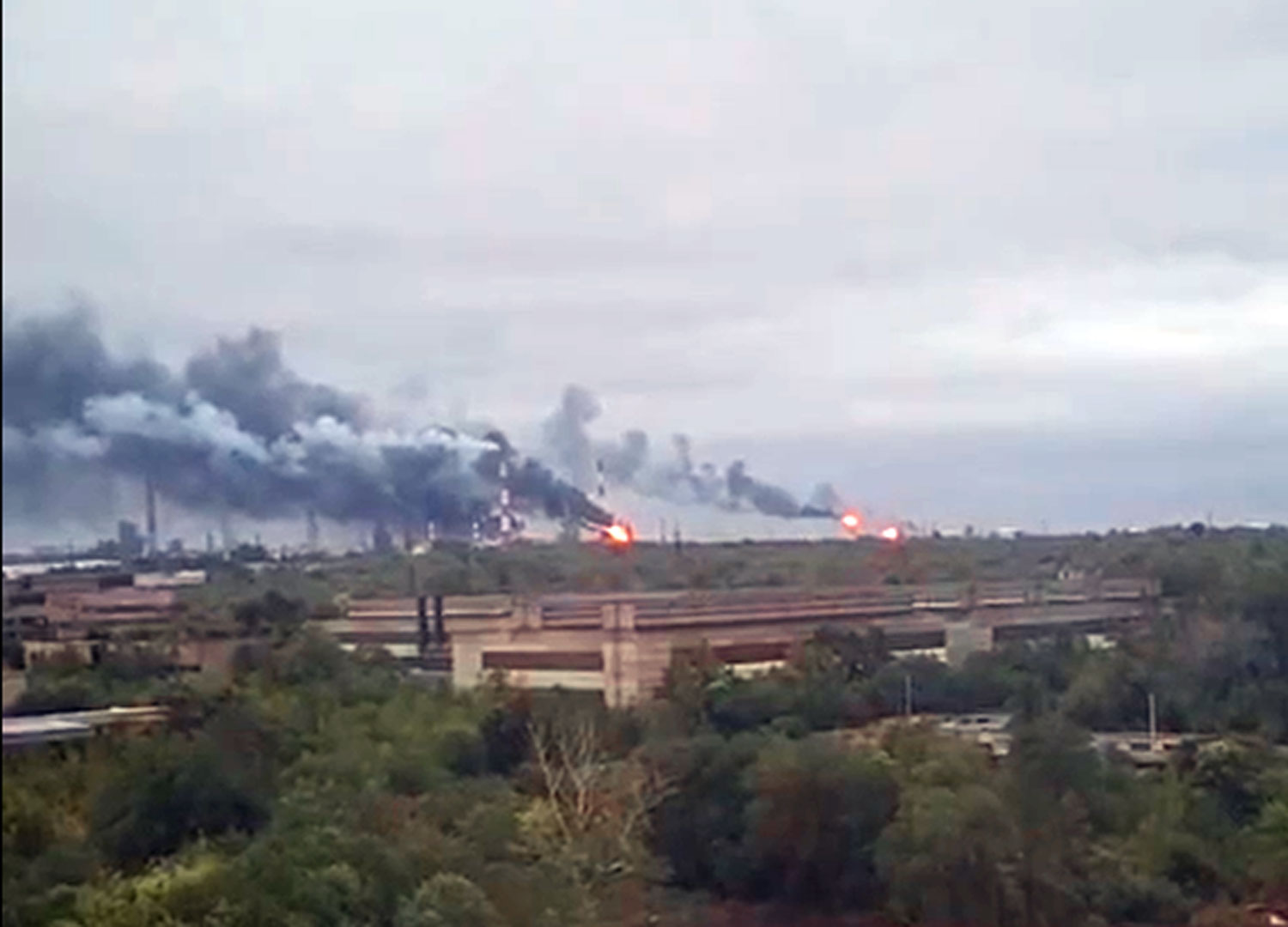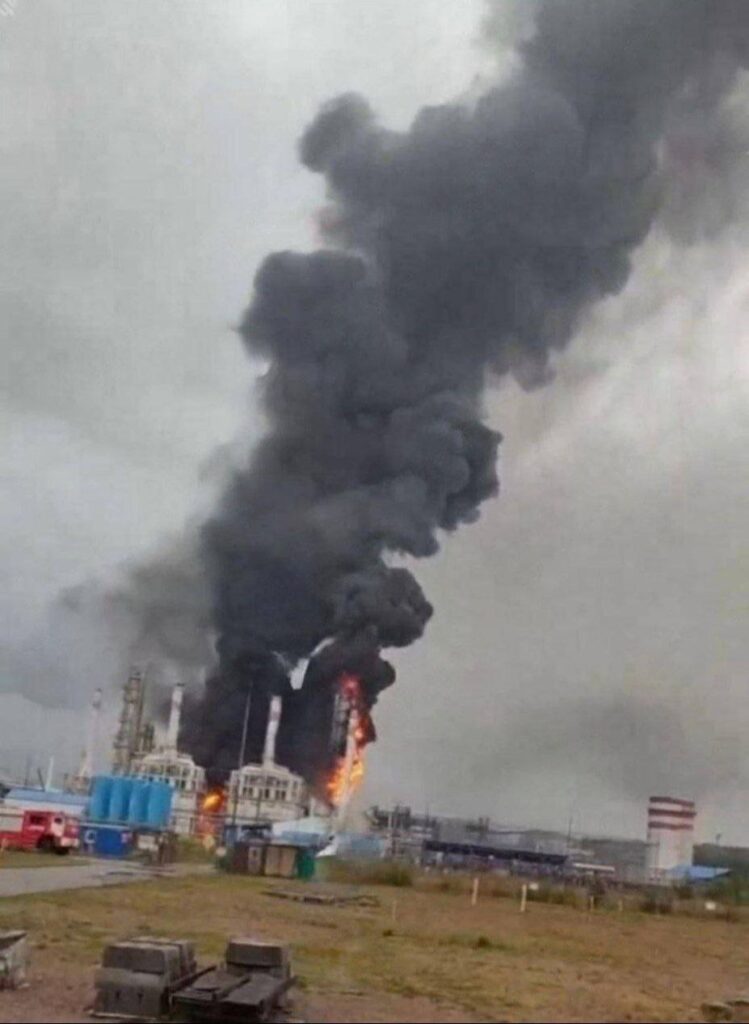Russia’s main oil terminal to lose 50% of exports due to Ukrainian drone attacks

Russia’s Ust-Luga oil export terminal will operate at around 350,000 barrels per day in September, representing approximately half its usual capacity, following damage to pipeline infrastructure from Ukrainian drone attacks, two industry sources told Reuters.
The capacity reduction stems from strikes on the Unecha pumping station in Russia’s Bryansk Oblast earlier in August. “Unecha is a key transit point for crude heading to Ust-Luga,” Reuters reported, citing industry sources who confirmed that repair efforts were underway with no clear timeline for full restoration.
The attacks have created ripple effects across Russia’s energy export network. The strikes also disrupted flows through the Druzhba pipeline, which supplies Belarus, Slovakia and Hungary. Slovakia announced on 28 August that “initial supplies via the pipeline resumed in test mode.”
To compensate for the reduced Ust-Luga capacity, “oil volumes will be diverted to Russia’s Primorsk and Novorossiisk ports,” according to the sources, who suggested this redirection “may help to limit export losses.”
The sources did not specify which pipeline sustained damage, and Russian authorities have remained silent on the extent of the damage or its impact on export schedules. Transneft, Russia’s pipeline monopoly that operates both the pipelines and the oil terminal, declined to comment when contacted by Reuters.
According to Ukrainian military sources cited in the report, Ukrainian drones have targeted at least four major facilities on Russian territory by 23 August. The strikes included the Lukoil Volgograd refinery on 14 August, with reports indicating operations ceased. On 18 August, drones hit the Druzhba oil pumping station in Nikolsky, Tambov Oblast, with Russians claiming restoration within 48 hours, though confirmation of restart remains absent.
The most significant ongoing damage appears at the Novoshakhtinsky refinery in Rostov Oblast, struck on 20 August. The fire there “has been burning for more than 60 hours and as of 23 August continues to increase in area,” according to Ukrainian Unmanned Systems Forces Commander Robert Magyar Brovdi.

